
What is Sustainability Marketing? 7 Key Examples + Tips
A new player has entered the scene of modern businesses – sustainable marketing. No, it's not just a passing trend; it's a strategic move that helps align your business goals with a commitment to environmental and social responsibility.
In this article, we'll explore the ins and outs of sustainability marketing and how to ensure you avoid the pitfalls of greenwashing false or deceptive claims of eco-friendly practices or actions). If done well, sustainability marketing can become a key part of your business strategy and generate significant returns. However, customers are astute and increasingly aware of the gap between a company’s sustainable claims and what they are actually doing to improve their processes. In the end, lack of transparency and honesty damages a company’s reputation as well as the trust a customer has in it. So, to be clear, only employ these marketing strategies if you actually have environmental metrics you are proud to show off!
With all that in mind, if you're looking for tips on how to navigate the complex world of eco-conscious marketing, you're in the right place. Here, we’ll delve into the need-to-know essentials and discover exactly how sustainability marketing can help elevate your brand while contributing to a more sustainable future.
What is sustainability marketing?
To begin, what even is sustainability marketing? As consumer goals shift toward more socially-driven issues and conscious spending, sustainability marketing is a crucial strategy to tap into. At its core, sustainability marketing involves incorporating ethical, social, and environmental considerations into every part of a company's marketing strategy. It's about going beyond profit margins and acknowledging the broader impact businesses have on the planet and society.
Why is it important?
- Addresses Environmental Concerns: Climate change is an ever growing issue that threatens our planet day by day, and it is in our hands to help mitigate it. Businesses play a key role in driving climate action, inspiring their consumer base, and adopting climate-friendly practices on larger scales.
- Builds Trust: Without trust, green initiatives may be seen by customers as marketing tactics or greenwashing, making them skeptical and disengaged. Frequent honest communication about sustainability milestones, goals, and shortcomings will build trust between the customer and the brand. Doing so can look like regular, transparent impact reports in your customers’ email, yearly sustainability reports on your website, and many more possibilities.
- Increases Employee Engagement: Many employees, especially the younger generation, seek employers with a commitment to social and environmental responsibility. Addressing environmental concerns can help attract top talent, enhance employee satisfaction, and improve retention rates. A survey conducted by Deloitte found that 79% of employees working for a sustainable brand plan to stay in their roles for the next few years, compared to 40% of employees in companies with lagging efforts. By promoting sustainability, employees also find a greater sense of fulfillment from working with your brand.
- Enhances Corporate Image: As well as being better for the planet and ensuring your brand stays up-to-date, sustainability marketing also enhances your corporate image for consumers, stakeholders, and other brands. A recent HubSpot survey revealed that nearly half of their respondents are more likely to buy from a company that strives to actively reduce negative environmental impacts.
In essence, sustainability marketing is not just a feel-good initiative; it's a strategic move that addresses environmental concerns, builds consumer trust, and enhances your overall corporate image. Beyond having effective loyalty campaigns and appealing to a new wave of younger customers, embracing sustainability marketing is not only about doing the right thing – it's about securing a better future for both your business bottom line and our planet.

So, how can you incorporate this into your business?
Now that we’ve given you the run-down on why sustainability marketing is essential to the modern business scene, where do you begin? While this can look different for every company, here are some key principles to keep in mind when building out your strategy.
- Long term: Many sustainability initiatives take time to show significant results. A long-term commitment makes sure that your brand can make a meaningful and lasting impact on environmental and social issues while keeping like-minded customers updated with your sustainability journey. Transparent reporting such as annual impact reports and company goals are an excellent way to bring customers along your sustainability journey.
- Consistent: Consistent sustainability efforts contribute to the overall brand identity, making it easier for consumers to recognize and remember your brand's commitment to ethical and environmental values. This recognition helps make your brand stand out against competitors.
- Reflected across your entire brand: When creating your sustainability marketing initiative, make sure to address sustainability across the entire brand to maximize the impact of your efforts. From ethically sourcing raw materials to using environmentally-friendly packaging to considering responsible end of life for products, every detail and logistical decision can contribute to a more sustainable and ethical business model.
True sustainability marketing thrives on transparency; it's not just about highlighting green initiatives but also about openly sharing the challenges and progress. In essence, authenticity is crucial. Consumers today are becoming increasingly wary and seek genuine commitments to sustainability, so when they discover such greenwashing, it erodes the trust they had in the company. Trust is a crucial asset in business, and once broken, it can be challenging to rebuild.

How do these principles look when they’re put into action? Here are some initiatives you can incorporate into your own brand.
- Donating profits: Donating a portion of profits to a cause aligned with company values gives your brand a positive image, signaling a commitment to social responsibility. Consumers often connect emotionally with brands that actively contribute to causes they care about. You can channel this by sharing stories about the impact of your donations that resonate with your audience!
- Work towards a mission: Working towards a mission involves aligning your business practices, products, and services with this mission. A well-defined mission sets your brand apart, helping it stand out in a crowded market. Consumers love supporting brands that align with their values, so having a clear mission can attract like-minded consumers.
- Emphasize transparency: Openly communicate your sustainability initiatives, goals, and progress while acknowledging challenges and setbacks transparently.
- Promoting a circular economy: Promoting a circular economy involves designing products with durability and recyclability in mind. Encourage product reuse, repair, and recycling and explore take-back programs to manage product disposal in a more responsible way. Consumers appreciate brands that contribute to a circular economy, reducing the environmental impact of consumption and seeing your brand as forward-thinking and innovative.
- Reduce environmental impact: Above all, you want your company to actually be making a positive impact on the environment to establish itself as a leader in the space. This can look very different across a wide variety of companies, but we’ll explore the variety of ways successful companies carry this out next!
All in all, it is important to remember that sustainability marketing is an ongoing, long-term commitment, and that it's essential to stay true to your values while evolving with changing environmental standards and consumer expectations.

Top examples of sustainability marketing
Ready to start your brand’s sustainable journey? Here are our top examples of the most effective existing brands changing the game:
- Thinx: Thinx is known for its innovative, sustainable underwear designed for periods, aiming to reduce waste associated with single-use menstrual products. While their waste-reduction and sustainability practices are already present in their main products, they’re also supporting grassroots organizations through their GiveRise program by raising money and donating products. They’ve also partnered up with iHeartMedia to drive awareness, raise money, and provide resources related to Black maternal health and family planning experiences.
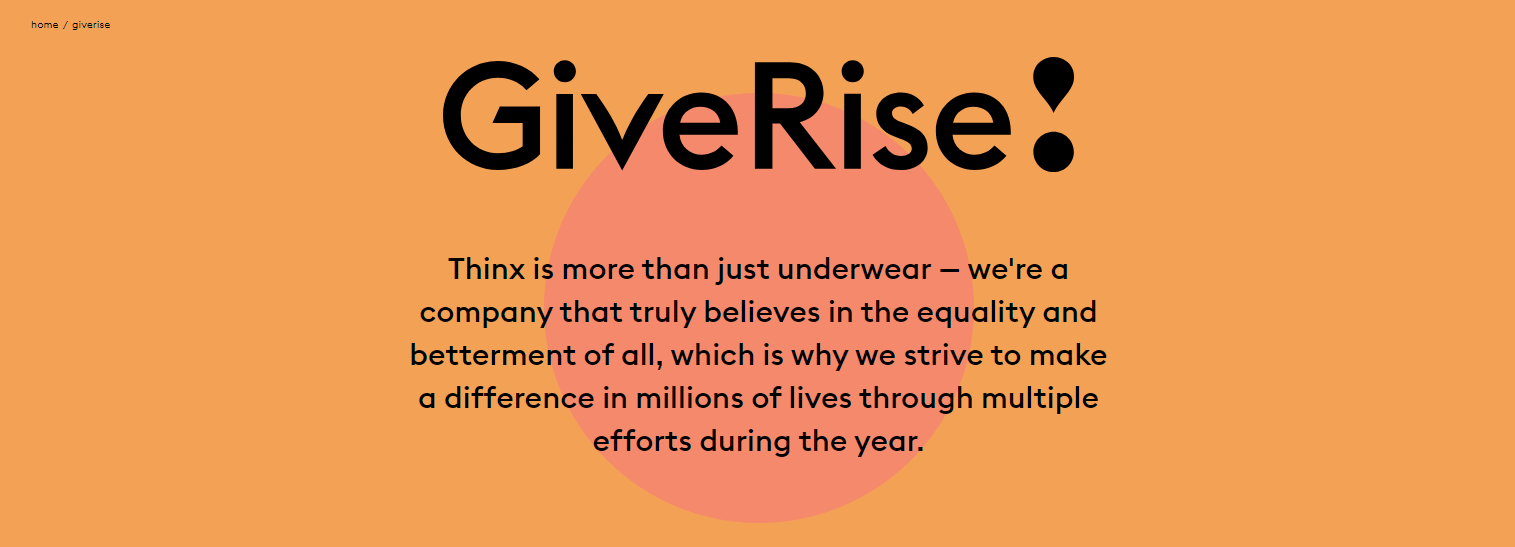
- Patagonia: Patagonia is a highly respected outdoor apparel brand committed to using recycled and sustainable materials, reducing the environmental impact of its products while also emphasizing fair labor practices and supply chain transparency, ensuring ethical treatment of workers. However, what sets them apart from many other sustainable brands is their level of commitment to bringing awareness and support to a variety of environmental and social causes through Patagonia Action Works. Through this, Patagonia works with local, grassroots organizations to tackle various issues while providing their customers with an easy yet comprehensive way to get involved through joining action groups, attending events, and much more. Patagonia also reflects their sustainable impact in their marketing by encouraging customers to engage in activism by watching documentaries or signing petitions.
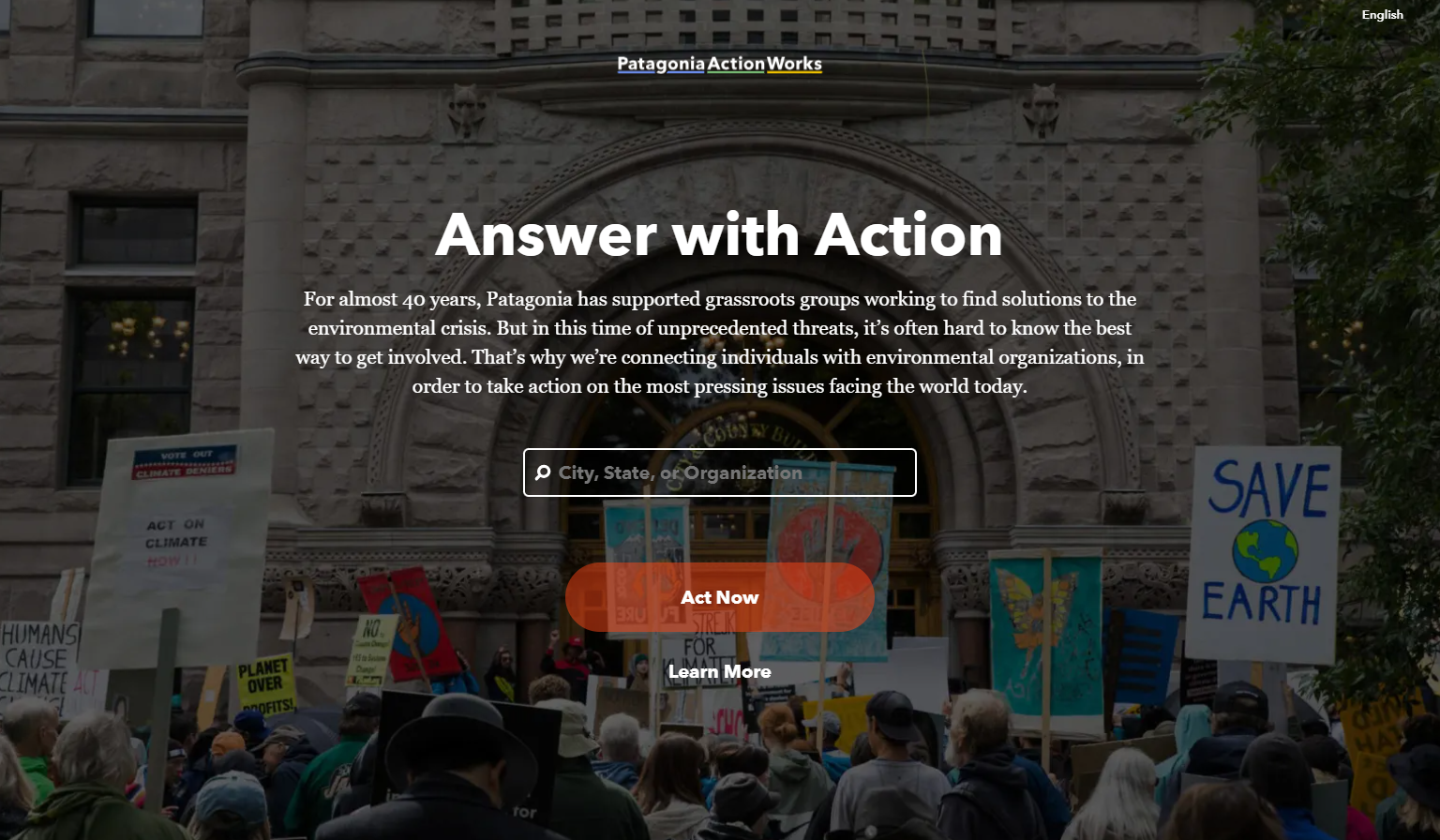
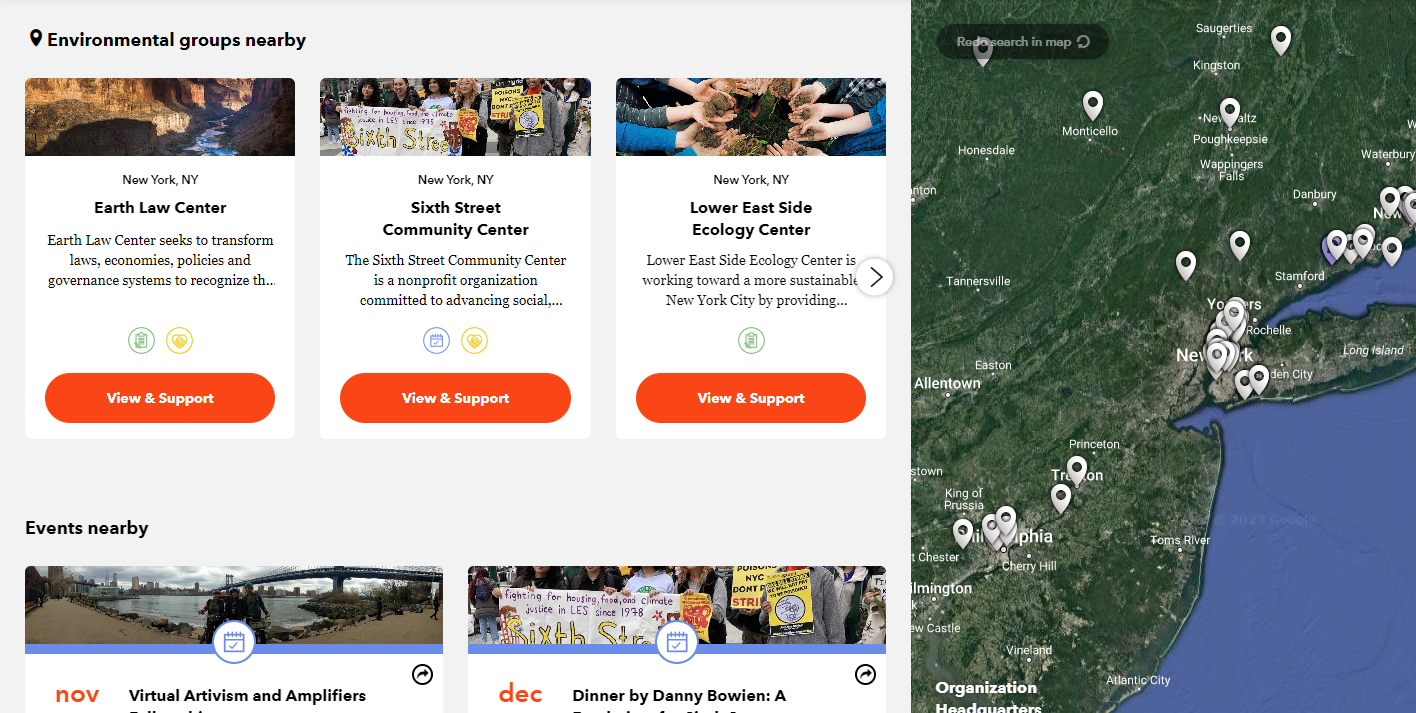
- Burt’s Bees: Burt’s Bees prioritizes the use of natural ingredients, recycled plastic, and cruelty-free practices in its skincare products, reducing reliance on synthetic materials. Beyond their products, they are also carbon neutral, and divert all operational wastes from landfills, and promote a circular economy with their product packaging. Beyond making their products reusable and recyclable, they also take back old packaging, further preventing it from reaching landfills. Because sustainability is so core to their operations, marketing campaigns about sustainability or use of eco-oriented branding feels authentic and engaging to consumers.

- IKEA: In its production, IKEA has committed to producing more renewable energy than it consumes in its operations. They’ve also helped make sustainability accessible to a wider consumer base by offering eco-friendly products at affordable prices. It doesn't just stop at furniture however; IKEA has the IKEA Foundation, a philanthropic organization dedicated to a variety of issues centered around sustainability and social issues like poverty and refugee livelihood. IKEA benefits from its commitment to sustainability and relationship building in their marketing because they can communicate their sustainability journey with customers to build closer, long-lasting relationships.
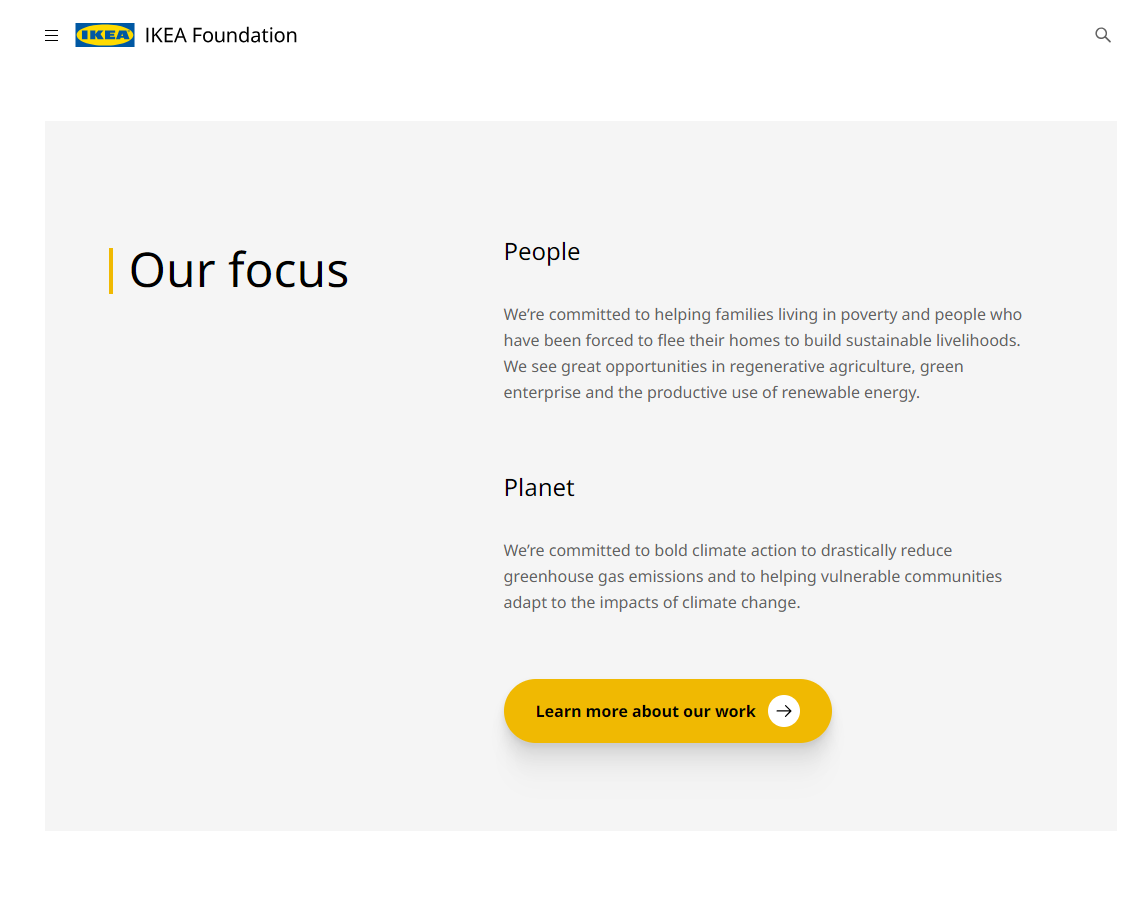
- The Body Shop: The Body Shop has long been committed to producing cruelty-free, vegan and fair trade beauty and skincare products packaged in recycled packaging. They’re also a certified B Corp, which means they meet the highest standards for social and environmental impact and transparency. It doesn’t end there, The Body Shop is also thoroughly dedicated to activism, fighting against animal testing, prejudice, environmental harm and more. Their website is more than just an online store, but an information hub with in-depth information about topics ranging from the voting age to the LGBTQ+ community. Because sustainability is core to the company’s mission, it is often reflected in their branding as well as the ways by which they communicate with their customer base. Their ideal customer leaves engagements with the brand feeling empowered and inspired, like they are an important part of something bigger than themselves.

- LUSH: When you walk into LUSH, its impossible not to recognize their commitment to product purity, chemical-free beauty, and sustainability. LUSH promotes a packaging-free approach with its naked products, reducing plastic waste. They also regularly donate profits to various social justice initiatives, and are well known for their Charity Pot, a body lotion with which they donate 100% of the price to grassroots social organizations so customers are clearly informed of their direct impact. Along with these initiatives, they also pride themselves on having ethically made, vegetarian, and cruelty-free products while also promoting waste-reduction through their Bring it Back program. All in all, LUSH is a great example of sustainable brand advocacy that is consistent and deeply reflected across its whole persona.
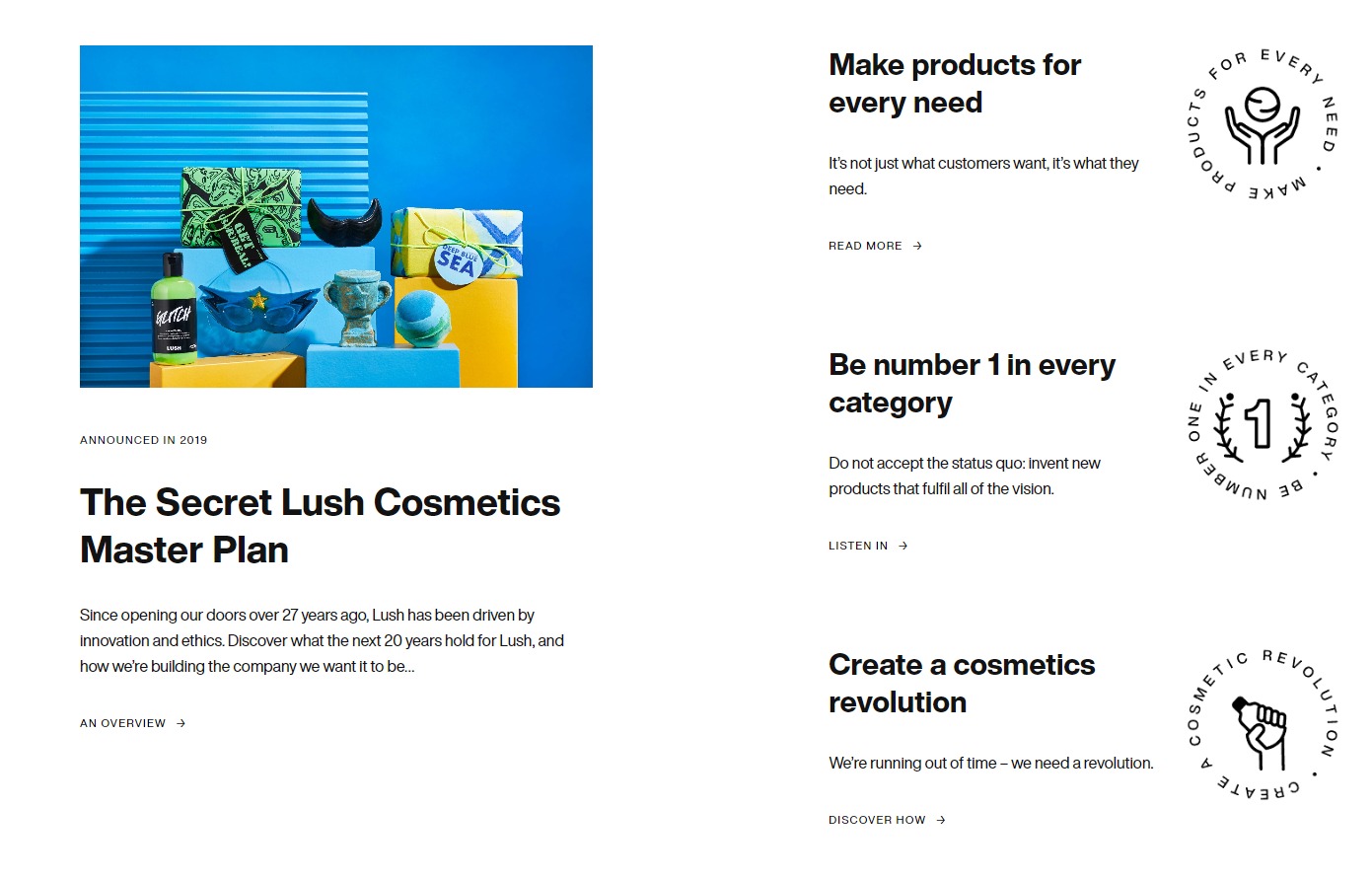
- TOMS: TOMS, another B Corp organization, pioneered the "One for One" model, donating a pair of shoes for every pair purchased, expanding to eyewear and coffee. They use storytelling to emphasize the positive impact of its charitable initiatives, creating an emotional connection with consumers and driving revenue growth through building brand affinity. However, they recently shifted to donating ⅓ of their profits to a variety of grassroots organizations to diversify their impact. They also focus on mental health, with a variety of resources, guides, and ways to get involved on their website.
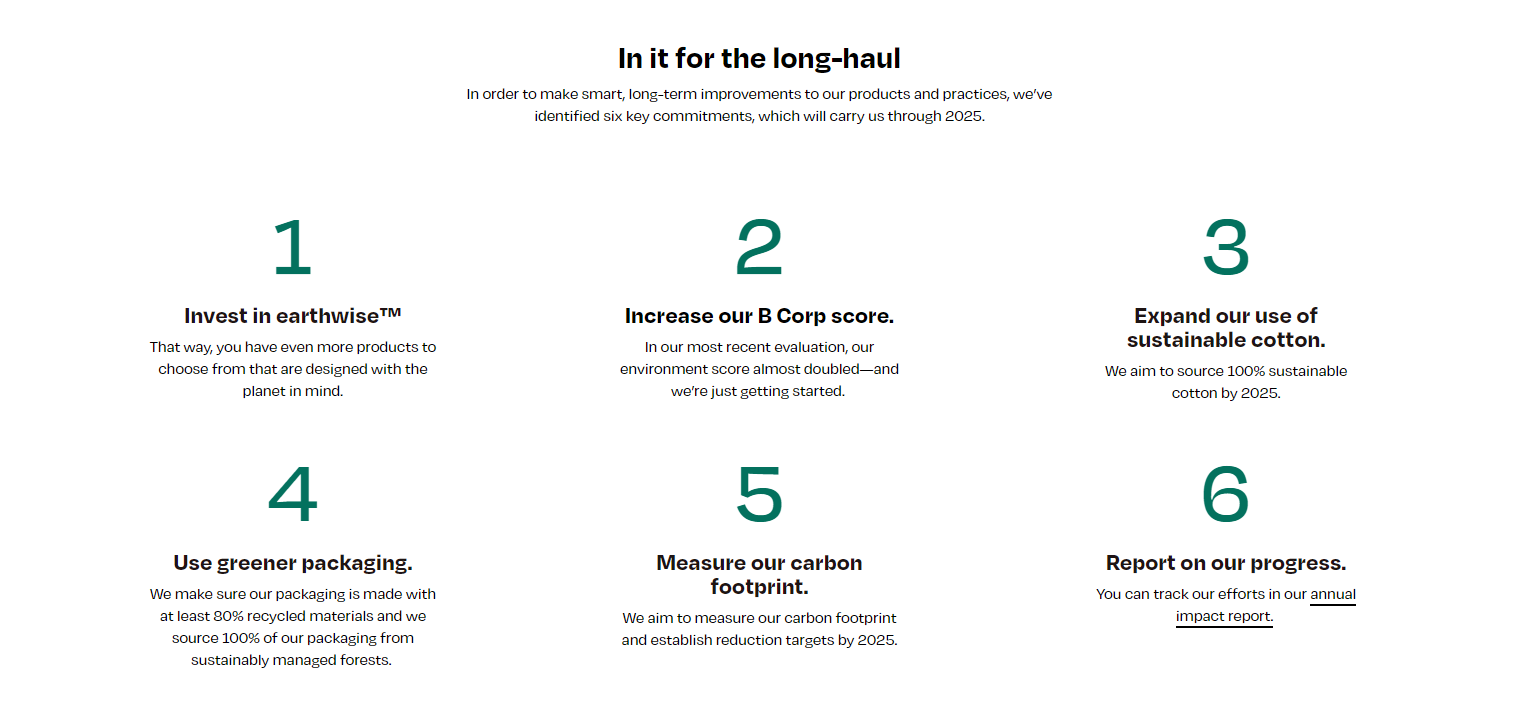
Along with their sustainability and social efforts, almost all of these brands annually publish transparent sustainability reports that keep their customers in the loop about their progress and goals--even including the places they fell short and needed to continue improving. This helps customers feel as though they’re part of the journey, increasing trust and support for the brand. We hope that these examples help your brand kickstart its sustainable future. When you strategically deploy sustainability marketing you benefit from helping the planet, and meanwhile drive significant business growth from the growing customer segment that wants to support brands that are doing well by doing good.
Consider a values-aligned customer engagement tool
A great way to align your brand with sustainability marketing is through your customer engagement platform. Are you looking for an impact-oriented software to deploy your customer loyalty strategy that will stand out against the stale programs competitors are using? Discover what’s possible with rediem. You can learn about the platform and join the waitlist here.

